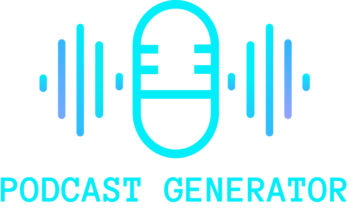A large element that holds many podcasters back from starting their own show is fear. The fear of making a mistake and failing as a result. So we went straight to the source and asked several podcasters about the mistakes made as a beginning podcaster.
The responses were illuminating. Check out some of the most common mistakes we learned podcasters have made below. Perhaps you can relate.
1. Not Having the Proper Setup
Several podcasters told us that they regretted not having the right microphone or equipment in the beginning. It’s scary to invest in things like headphones, a mixing board, editing software, etc… Especially in the beginning. However, that’s exactly what it is – an investment. If you are serious about going pro, or even if you have hopes that someday you could go pro, you might need to spend a little bit of money to get professional sounding audio quality.
As podcaster Scott Weston so humorously put it: “Buy once, cry once.” It may hurt to put the investment in upfront, but once it’s done, it’s done and you can focus your efforts on making your show as good as it can possibly be.
Note: We’re not saying you should go into debt to purchase your start-up equipment. Only you can decide how much you can afford to put into your podcast. Also, read our post about how much it costs to start a podcast.
2. Being Inconsistent
This was a problem for many of the podcasters that chimed in, and it’s understandable. When you first start your podcast, it’s easy to think that you can just commit to recording and editing an episode each week. That is until you’re supposed to release a new episode on Saturday morning and you’re still recording the night before.
The reality is that life can get in the way and when it does, your podcast might fall to the backburner. For example, one woman we spoke to launched her show when she was six months pregnant. She said, “later in pregnancy, it became difficult to sit for a long period of time and record so I couldn’t be consistent enough. People love my podcast. I think I would have had a much bigger audience by now if I would have been more consistent.”
Consistency is one reason why we’re such huge advocates for batching and scheduling your shows. This is especially critical for when your show starts growing a fanbase. If your fans expect a weekly release, delivering on those expectations is key to keeping them around.
It’s also why as you grow, you may want to consider asking for help with your podcast workflow. Outsourcing tasks like editing, marketing, and other jobs that don’t require the host(s) allows more time to focus on the creative elements and recording of the show.
3. Worrying Too Much About Other People’s Opinions
How will people react to what you say on your podcast? That worry is what keeps far too many podcasters from launching their show. One podcaster said it prevented him from recording for more than a year, but finally, he decided to stop caring about what people might think and go for it.
Odds are, you’ll have more regret if you don’t launch than if you do. Yes, it’s true that there may be people who disagree with things you share on your show, but your true fans will be grateful you spoke up and spoke out on your topic of choice.
In a post on Tiny Buddha, Leah Cox summed things up beautifully in her article “Are You Limited by the Fear of What Other People Think?”:
“More than anything, when you stop caring what others think and set out to achieve your goals and dreams, you give others the power to do the same.
Someone is always watching and wishing they had your courage. By stepping up to your own fears, you really do help others face theirs.”

4. Losing Audio/ Forgetting to Hit Record
There’s nothing worse than finally landing a big interview, only to have something go awry. Luckily, most people are understanding and willing to re-record. We’re all human, and errors can occur.
One way to prevent mistakes with audio is to always back up your files before and after editing. Another pro tip is to test your audio inputs and outputs multiple times before your interviews begin. It’s yet another reason batching is such a good idea. If you batch record, you can set up your equipment once, make sure it’s working, and then record as many episodes as possible per session. Of course, confirming everything is working throughout your batch recording session is also a good idea.
Also see: “How to Record and Edit a Podcast”
5. Not Having a Clear Focus
When we first start podcasting, it can be so exciting that we forget what’s most important – our listeners. It’s not uncommon to want everyone to be a guest, particularly the big names. We want to talk about anything and everything. We want to share our show everywhere. Wait a minute! It’s time to pump the brakes!
The better way is to have a clear goal from the beginning. For example, if the goal is to use your show to drive leads for your business, you need to have a clear call to action in every episode to come back to your website. Once they arrive at your website, you need a reason for them to give you their contact information. If you want to monetize, you need a plan in place to make that possible as well. How will you monetize your show? Affiliate marketing, ads, paid guest appearances, etc…?
You need a main topic that your show will be centered on. That’s why you can’t just talk about any old thing. Your ideal listeners are here for a reason – give them what they want.
Your podcast should only feature guests that are in line with the message and ideals of your show. Therefore, no, not everyone will be a good fit.
Finally, you shouldn’t share your show everywhere. Instead, go after your ideal listeners where they are already hanging out. For example, you would never promote your cocktail podcast in a Facebook group that believes in abstaining from alcohol. Instead, you should be promoting in a space where cocktail enthusiasts are.
Bottom line: The more clear your focus is, the better chance you have of growing a truly loyal fanbase. Speaking of which….
6. Marketing the Wrong Way
This mistake fits hand in hand with having a clear focus. Many podcasters confessed to throwing away money on inefficient marketing efforts. The biggest offense was throwing money at Facebook ads in an effort to draw listeners without a plan. Facebook, Instagram, Twitter, LinkedIn, and Pinterest are all too happy to take your money, but if you don’t have a targeted audience, you are literally throwing money away.
Before you start marketing your show, you should put a plan in place for how you will go about promoting. Think about things like:
— Who your ideal listener is – this will make it easier to target ads directly to them
— Which platform they are hanging out on?
For example, 38% of Twitter users are between the ages of 18 and 29, but 75% of the same age group are on Instagram. So, if you’re targeting that age group, your marketing should be on Instagram over Twitter.
— What is your message to drive listeners to your show? Why should they listen?
— Where should you promote?
For example, some people only use social media, whereas others focus on SEO to drive listeners.
While it may feel overwhelming to create a marketing plan, it’s better than wasting time and money only to not see a blip in listener numbers.
💡 Pro tip: Add a podcast to Facebook and Facebook will create audiograms of your episode’s that will be published on your News Feed.
7. Not Starting Sooner
How long have you been saying you wanted to start a podcast? Perhaps you have thought about it for years. Maybe you even have an editorial calendar with show ideas. What are you waiting for?
One of the podcasters we spoke to waited 10 years before starting his show. Another had her domain for 6 years, and she even had a full editorial calendar written out before finally launching.
Marie Forleo said it best when she said, “The world needs that special gift that only you have.” You are doing a disservice to your potential audience by not releasing your show. You have a message that needs to get out there.
Huge thanks to Podcast Movement for providing the platform for us to ask podcasters about mistakes made as a beginning podcaster! Join their free Facebook group to connect and network with other podcasters just like you who are trying to figure things out for their own shows.
